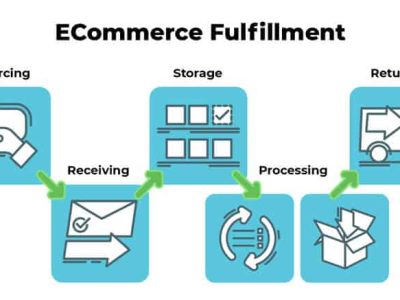Are you considering investing in a new business venture? One of the options to explore is purchasing an existing business. There are plenty of businesses for sale in the market, but how do you know which one is the right fit for you? In this investment guide, we will explore how to find profitable businesses for sale and make informed decisions when making a purchase.
Understanding the Market for Businesses for Sale
Delving into the realm of acquiring an existing business for sale necessitates a keen insight into the prevailing market conditions. The reasons businesses are placed on the market are manifold, ranging from owners seeking retirement to financial exigencies or shifting towards different ventures. Conducting a meticulous analysis of current market trends is imperative, alongside pinpointing sectors that are not only flourishing but also show signs of sustained growth over time. This strategic approach allows for a refined search, focusing on entities that present a tangible promise of profitability. Recognising the underlying motivations behind each sale and the economic health of various industries equips potential investors with the knowledge to identify opportunities that align with their long-term investment objectives. Engaging in this level of market exploration lays a solid foundation for making informed choices in the pursuit of profitable business acquisitions.
Evaluating Potential Business Investments
Delving into the specifics of evaluating potential businesses for sale is a crucial step in the investment journey. This evaluation should begin with a deep dive into the financial stability and performance of the business. Key financial indicators such as profit margins, revenue growth rates, and EBITDA (Earnings Before Interest, Taxes, Depreciation, and Amortisation) offer invaluable insights into the business’s health and capacity to generate future cash flow. Beyond the numbers, understanding the competitive landscape within which the business operates is paramount. This involves assessing the strength and number of competitors, the business’s market share, and any unique selling propositions (USPs) that differentiate it from its rivals.
Additionally, evaluating the scalability of the business and its adaptability to changing market trends can unveil the potential for future expansion and increased profitability. Scrutinising the management team’s expertise and the operational efficiency of the business will also shed light on the business’s potential to maintain or improve its market position. This holistic approach to evaluation ensures that investors can gauge the viability and growth prospects of businesses for sale, paving the way for astute investment decisions that align with their financial goals and risk appetite.
The Due Diligence Process
Embarking on due diligence is a critical juncture in the journey towards acquiring a business. This meticulous investigative stage delves deep into the company’s operational, financial, and legal standings to unearth any concealed liabilities or issues that could potentially derail its value. It’s a stage that demands a thorough examination of the business’s licensing agreements, employee contracts, current litigation, and compliance with regulations, amongst other aspects. Engaging with experienced professionals, such as chartered accountants, legal experts, and business analysts, becomes indispensable during this phase. Their expertise facilitates a comprehensive review, ensuring every stone is turned in. Through due diligence, prospective buyers can verify the accuracy of the seller’s information and gain a holistic view of the business’s operational dynamics and market position. This process not only highlights potential red flags but also provides leverage in negotiating the terms of the acquisition. It serves as a protective measure, safeguarding against unforeseen challenges post-purchase. Hence, dedicating the necessary time and resources to conduct due diligence is paramount for investors aiming to make a secure and informed business acquisition.
Financing the Acquisition
When the due diligence phase affirms the business’s value, and you are prepared to move forward, financing emerges as a critical consideration. Diverse pathways exist to fund this venture, each with its distinct advantages and considerations. Utilising personal capital is a straightforward approach, yet it necessitates a substantial liquidity level and a willingness to bear the investment’s total risk. Alternatively, securing a loan introduces a leverage component, potentially enhancing returns and increasing financial risk due to the obligation to meet interest payments. Engaging with financial institutions necessitates a robust business plan and clearly demonstrating the acquisition’s profitability potential.
Exploring partnerships or investor groups presents another viable route, offering financial support and potentially valuable expertise and networks. This option often involves sharing ownership and decision-making, which demands careful consideration. Evaluating the pros and cons of these funding avenues requires a meticulous approach, balancing the need for financial support with the strategic vision for the business’s future. It is imperative to align the chosen financing method with both your investment strategy and risk tolerance, ensuring the acquisition’s long-term sustainability and growth potential.
Negotiating the Purchase and Finalising the Deal
Entering negotiations over a business’s acquisition requires a nuanced understanding of deal-making. It’s crucial to approach these discussions with a clear vision of what constitutes a fair deal, considering the valuation of the business, its market potential, and any liabilities uncovered during due diligence. Articulating your terms with clarity, including the payment scheme, timelines, and any conditions precedent to the sale, is paramount. Collaboration with solicitors specialising in corporate acquisitions is advisable to ensure the purchase agreement is meticulously drafted, safeguarding your interests and facilitating a seamless ownership transition. It’s also essential to consider the post-acquisition integration process, mapping out how the business will be merged into your existing operations or run as a standalone entity. Effective negotiation strategies and legal insight can significantly influence the purchase terms, potentially saving you substantial sums and laying a solid groundwork for the venture’s future prosperity. Upon reaching an agreement, focusing on a smooth handover and the strategic direction of the business is critical to realising its growth potential and integrating its operations, staff, and ethos with your overarching business objectives.













Comments